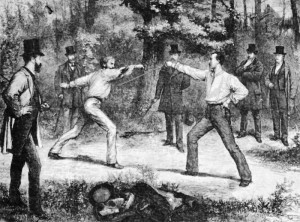 One of the most harmful words in the English language are I, my, and me.
One of the most harmful words in the English language are I, my, and me.
It is not that they are intrinsically harmful! they are harmful the way we relate to their meaning.
Context is decisive. Sometimes these words (I, my and me) are the context, and sometimes they are heard in a context… confusing? Yeah, context has been confusing to many of my students. But being confused is a very high state: the lowest state a human is “knowing.” Why? Because once you think you know, once you think you have the answer, you stop looking, you stop being present, your mind is running the show, the stupid machine that anyone can hack, and they do, and you wouldn’t even know.
What is the highest state? I am not sure. But I am certain that the “I can see that” is higher than “confused”. I am not at the highest state, or if I am, I have no idea what indicates that state… so let’s not go there, ok?
OK, I, my, and me…
Let’s see when the context is I, my and me… what happens to the story as a result. Remember, context is like the backdrop in a photo studio: the foreground can stay the same, but with the change of the backdrop the interpretation, the story changes instantly.
 When I, my and me is the context, then the worldview is that you are an object in a world of objects, struggling, fighting for survival, fighting for recognition, fighting for attention, fighting for esteem, and all the other objects are doing the same, so your sense is that you are always in danger of someone taking your position away, causing your chances for survival to lessen.
When I, my and me is the context, then the worldview is that you are an object in a world of objects, struggling, fighting for survival, fighting for recognition, fighting for attention, fighting for esteem, and all the other objects are doing the same, so your sense is that you are always in danger of someone taking your position away, causing your chances for survival to lessen.
What happens when somebody calls you stupid and the context is I, my, and me? That “stupid” is like a glove dropped in the Middle Ages 1 : an invitation to duel 2 till death. You will feel attacked, and you will have to fight, or you are a weakling, you are nothing, you don’t deserve…
Now, what happens when YOUR mother is stupid? because of the relationship, their being stupid, doing stupid, whatever, is now reflecting on you… they are now the enemy and you have to let them know.
Anything that comes, in this context, after the word MY is either going to add to your perceived value and position, or detract from it.
Living in the context of I, my and me is a sure prescription for a life of misery, battling, suffering, and stress.
Now, is there a context inside which I, my, and me are just words? Yes.
The context inside which the misery happens is our common perception, our common context for the world: that we need love, appreciation, value, etc. from other people, or we can’t survive.
 It seemed true when you were a baby, that survival was tied in with the people smiling around you. That when you smiled they picked you up, they put new diapers on you, and fed you.
It seemed true when you were a baby, that survival was tied in with the people smiling around you. That when you smiled they picked you up, they put new diapers on you, and fed you.
And then it looked that unless you were “good”, unless you did what other people wanted you to do, you weren’t loved, so you gave up what you wanted to do, meekly or begrudgingly, but you gave it up all the same. And you hoped that that huge sacrifice would buy you love, and it didn’t. Then you got married, had children, and gave up your whole life for the people that were supposed to love you, but unless you X, they didn’t love you… and you are here now, totally dependent on other people for your self esteem, your self worth, your value as a human… and you are miserable, fighting for scraps.
I was exactly like you until a few years ago.
I was guided to create a Theta Healing style activator, called Unconditional Love Activator.
Then I emailed all my friends to ask them to test it for me. The first tester was Nancy. I remember saying the words and the words sounded like a prayer, sounded like they were channeled, they sounded devine.
The process took some 15-20 minutes. I felt my molecules re-arranging themselves, I felt my nerves getting smooth and calm for the first time ever in my life.
I felt that I arrived HOME.
All my life I’d wanted to go home, but I didn’t know what I meant… until that fateful day, two and a half years ago. I’ve been at home ever since.
So, when you get into that space where the world seems to be against you, I always recommend the Unconditional Love Activator.
There are three generations of that activator.
- Generation 1: you need to be connected to Source to get it. If you are able to connect and stay connected for at least 20 minutes, this is for you. It takes about 40 repetitions for this activator to do enough damage to the status quo… so you can be free from other people’s opinion and the slavery it degrades you to.
- Generation 2: Sleepy Time: this is a version where you need to be asleep to get it. This version is combined with the Heaven on Earth and the Energizer: a real powerhouse
- Generation 3: The 40 declarations of the activator are energetically combined into a bundle and downloaded into the audio, and through the audio to you, without you having to be connected. It is also long range activator, so it effects the people around you, home, work, neighborhood.It’s best when it is used, at least some of the time, in a co-creative way: bringing it up in your consciousness that Life, Source, The Creator loves you, unconditionally, no matter what you do, how you look, how smart you are, how good or bad you smell… always. Unconditionally. And that is all the love you are ever going to get, that is all the love you should ever expect, because humans can’t really love, until they are upgraded to Human Being… at present a miniscule percentage of all humans.
How to get it: Generation 1 and 2 are for sale on https://yourvibration.com/unconditionallove
Generation 3 is being tested, and you can only get if you watch the replay of the Winners webinar… https://yourvibration.com/dimewebinar and commit to becoming a tester.
- throwing down the gauntlet
 A duel is an arranged engagement in combat between two individuals, with matched weapons in accordance with agreed-upon rules.
A duel is an arranged engagement in combat between two individuals, with matched weapons in accordance with agreed-upon rules.Duels in this form were chiefly practiced in Early Modern Europe, with precedents in the medieval code of chivalry, and continued into the modern period (19th to early 20th centuries) especially among military officers. During the 17th and 18th centuries (and earlier), duels were mostly fought with swords (the rapier, later the smallsword, and finally the French foil), but beginning in the late 18th century and during the 19th century, duels were more commonly fought using pistols; fencing and pistol duels continued to co-exist throughout the 19th century. Pistol dueling was employed many times in the Colonial United States until it fell out of favor in Eastern America in the 18th century. It was retained however in the American Old West for quite some time due to the absence of common law.
The duel was based on a code of honor. Duels were fought not so much to kill the opponent as to gain “satisfaction”, that is, to restore one’s honor by demonstrating a willingness to risk one’s life for it, and as such the tradition of dueling was originally reserved for the male members of nobility; however, in the modern era it extended to those of the upper classes generally. From the early 17th century duels became illegal in the countries where they were practised.
